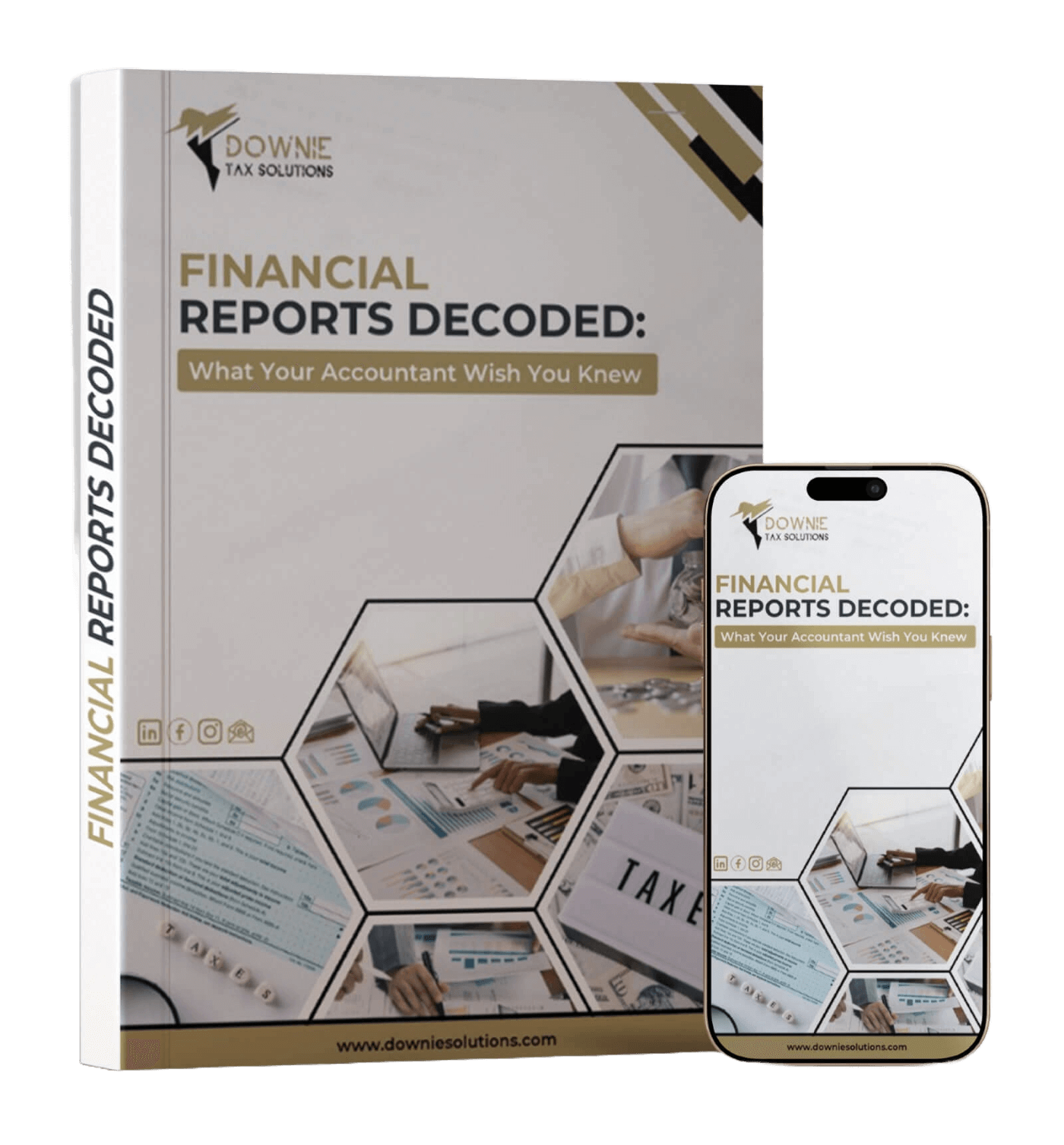
-Shaneque Downie, EA

At Downie Solutions, we help entrepreneurs turn financial challenges into clarity and growth. By simplifying your finances and building smarter systems, we guide you past roadblocks and position your business for long-term success. With specialized expertise in construction firms and NEMT providers, we understand the unique compliance, payroll, and tax planning hurdles you face — and how to move you forward.

Set your business up for success with guides, templates, and toolkits designed to keep you compliant, organized, and positioned for growth.

Your financials aren’t just numbers — they’re your business’s roadmap. This free guide breaks down the Profit & Loss Statement, Balance Sheet, and Cash Flow Report in plain English (no jargon, no fluff). With real-world insights, you’ll learn how to make smarter decisions and lead your business with confidence.


We start by understanding your business, challenges, and financial goals. In this initial consultation, we identify key areas for improvement and opportunities for growth.
Following our consultation, I’ll craft a personalized proposal detailing our recommended strategies, services, timeline, and investment. This proposal is tailored specifically to your needs, ensuring a clear path toward achieving your goals.
Once the proposal is approved, we move into the planning phase. We’ll collaborate closely to finalize essential details such as timelines, priorities, and any supporting information needed. This step aligns our approach with your unique business objectives.
With a well-defined plan in place, I’ll begin implementing strategies tailored to your business. Throughout this process, I provide regular updates and insights, so you’re always informed and confident in the progress toward your financial goals.